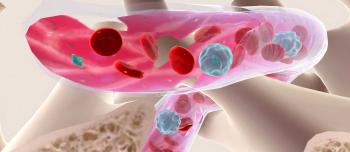The National Hemophilia Foundation understands the need to keep the bleeding disorders community informed as much as possible on information we receive about ongoing clinical trials. NHF is saddened to have learned of the death of one of the participants in the clinical trial HAVEN 1 with the bi-specific antibody emicizumab. It has been determined that the cause of death is not related to emicizumab and the HAVEN 1 trial is still ongoing. We will continue to keep you informed on these matters.
We have received the following statement from Roche/Genentech, the company who is conducting the clinical trial. It is printed in full below.
Statement from Roche:
HAVEN 1 is the ongoing phase III study investigating the safety and efficacy of emicizumab in people 12 years of age or older with hemophilia A and factor VIII inhibitors.
As part of our standard process to receive and expedite the reporting and investigating of adverse drug events (AEs), we received two new reports of Serious Adverse Events (SAE) in a patient who was enrolled in the HAVEN 1 study. Unfortunately, we were informed that the patient passed away. We are deeply saddened by this information.
The HAVEN 1 trial is ongoing, and thus the amount of information we have and can share is limited in order to protect the integrity of an ongoing study. Below is a brief summary of the medical history.
- It is our understanding that a patient experienced a serious rectal hemorrhage (first reported SAE) and received bypassing agents, including repeated doses of activated prothrombin complex (aPCC), after which the patient developed signs of Thrombotic Microangiopathy (TMA) (second SAE).
- The preliminary assessment is that the clinical and laboratory characteristics of this case of TMA are consistent with what was observed in the two previously reported cases; however, our evaluation of the available information is ongoing.
- After aPCC was discontinued, laboratory values associated with TMA (platelet count and LDH) were improving.
- According to the report, treatment of the hemorrhage was complicated because the patient declined blood transfusions.
- The investigator’s assessment is that the cause of death was the rectal hemorrhage, and that this is not related to emicizumab.
- The preliminary assessment is that the clinical and laboratory characteristics of this case of TMA are consistent with what was observed in the two previously reported cases; however, our evaluation of the available information is ongoing.
- Based on the available details of the case and our initial assessment, we believe our current protocol guidance in the trial regarding the use of bypassing agents remains appropriate.
- This guidance includes the recommendation to avoid the use of aPCC, if possible, as well as to use the lowest doses of approved bypassing agents in patients receiving emicizumab.
- We are continuing to investigate the details of this patient case and we will update any guidance as appropriate.
- We have developed our guidance in consultation with our independent data monitoring committee (IDMC), which includes highly respected scientific and clinical hemophilia experts.
- We will be evaluating the information from this particular case in the context of the other information from our on-going clinical trials.
- We look forward to presenting data from the HAVEN 1 study of emicizumab in people with hemophilia A and inhibitors to factor VIII, which will provide better context for the overall benefit/risk profile of emicizumab in this patient population, at an upcoming medical conference.
For all of us at Roche, patient safety continues to be of paramount importance. We will continue to work closely with the IDMC, Steering Committee, and our Investigators to evaluate all safety events that have been observed and to ensure the proper measures are in place to assure continued patient safety.
Meantime, we would recommend that all questions related to the above safety events be referred to the Roche affiliate in your respective country. Questions from patients participating in an emicizumab clinical trial should be referred to the relevant study investigator.





